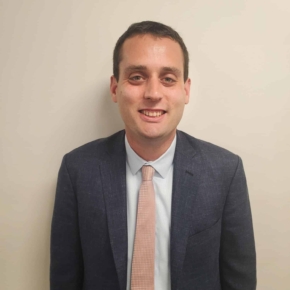
SAMUEL S. KORACH
Samuel Korach manages transit safety and security oversight support throughout the State of Florida. Sam leads multi-disciplinary teams through internal and external audits, special assessments, regulatory inspections, and operational analyses.
Mr. Korach provides effective safety and security oversight support services to State Safety Oversight (SSO) programs across the country. Mr. Korach’s extensive portfolio of safety and security oversight work has included the management and coordination of numerous on-site reviews and audits in accordance with SSO program requirements. Mr. Korach works closely with state clients to ensure focused and effective reviews and audits that result in actionable findings to improve system safety and security. Mr. Korach provides assistance to SSOs as they transition from the system safety methodology to the safety management systems approach. Mr. Korach supports bus, fixed guideway, and railroad systems in the development, revision, and application of operating and maintenance programs. In addition, Mr. Korach assisted multiple new start rail systems with project milestones, culminating in public service. His guiding principles are informed by industry best practices gleaned from working as staff liaison to a nationwide committee of rail operations experts. He applies these lessons to streetcar, light rail, heavy rail, and automated people mover systems. Mr. Korach performs skilled on-site and off-site assessments of operations and operations control, supervision, and inspection and maintenance programs. Mr. Korach works with clients to develop and deliver effective transit security programs, including training. Mr. Korach is adept at document development, gap analysis, delivery of emergency drills and exercises, and adherence to national standards for security and emergency preparedness. Mr. Korach provides a comprehensive, analytical approach to each security assignment, understanding that each organization faces unique operational limitations.